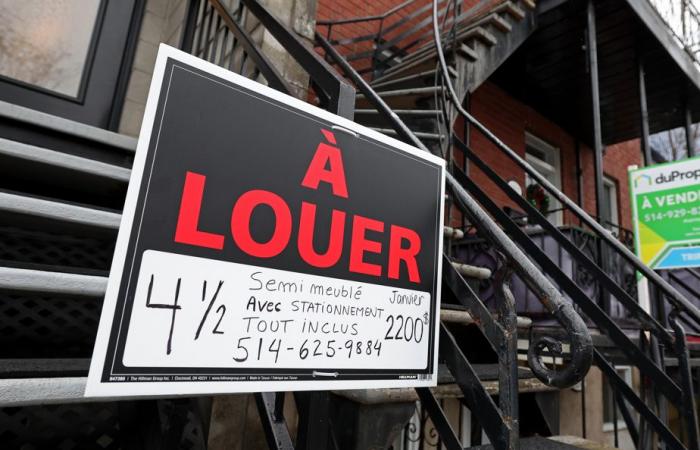This week, many of you sent in your questions about the suggested increase in rent prices. New buildings, residences for the elderly, housing cooperatives, The Press dissected your situations with two specialists.
Published at 6:00 a.m.
If my landlord has not done any work in the six-unit building for the year 2024, does he have the right to increase the rent? — Sylvie Blackburn
Yes, the owner has the right to increase the rent even if he has not carried out any work in the building. Every year, in January, the Administrative Housing Tribunal (TAL) issues a suggested increase to owners depending on the type of housing. For unheated accommodation, in 2025, the TAL suggests increasing the rent by 5.9%.
However, if the owner had invested in 2024, for example, $5,000 in work in this accommodation, the TAL suggests an increase of 8.5%.
PHOTO TAKEN FROM SUZANNE BOISVERT’S WEBSITE
Me Suzanne Boisvert, lawyer specializing in real estate law at Juridex Avocats
Me Suzanne Boisvert, lawyer at Juridex Avocats, makes an important clarification: a landlord cannot increase his rent in anticipation of future work, or in other words, which will take place during the period of your next lease. “It must be work that was executed, carried out or substantially carried out no later than December 31 of the previous year,” she explains. Tenants must have been able to benefit from it the previous year. »
What about clause F of the lease which states that in the first five years of the lease of a new building, the owner can increase the rent as he sees fit? Should he still justify the increase? If it is excessive, does the tenant still have recourse?
— Marie-Paule Ménard
Landlords who meet clause F do not have to justify the rent increase, note Me Marie-Pier Durand, lawyer at Juripop. If the tenant refuses the rent increase, he agrees to leave the accommodation at the end of the contract.

PHOTO CATHERINE DESLAURIERS, PROVIDED BY JURIPOP
Me Marie-Pier Durand, senior lawyer at Juripop
-However, landlords whose leases were signed after February 20, 2024 are required to indicate the maximum rent that could be claimed over the next five years. If applicable, the tenant may refuse the notice of increase, and the owner will have to file a request for rent fixation to the TAL.
A tenant did not notify me within the prescribed time frame that she was refusing her rent increase. In court, the manager asked me to prove that the tenant had not responded to the notice. Is there anything like proof from the post office that shows they did not send a document?
— François Goulet
At the TAL, it is the applicant of the cause who is responsible for demonstration, replies Me Boisvert. If the tenant has simply not responded, it will be up to her to prove that she did so within the prescribed time frame. To this end, Me Durand always recommends having proof of receipt in writing, both from the tenant and the owner: “We speak on paper, by text, by email, a letter, whatever, whether it is written. If the TAL ever asks for proof, we will be able to show it to them,” she describes.
My parents experience an increase in their small rent each year in their residences for the elderly (RPA). Do we have recourse to stop or reduce the amount set — especially if the RPA does not improve anything in terms of quality of activities and comfort of the building?
—Marie-France Trudel
Housing in RPAs is subject to the same rent setting criteria. Me Durand mentions, however, that the rent in an RPA can increase due to service costs and costs specific to the person – doorman, security, cleaning, meals, care – which are criteria taken into consideration in the calculation of the suggested increase in the TAL . “I would say that the way to do it is to contest the increase, then the RPA will have to demonstrate with the invoices, the supporting documents, how it arrives at its calculation,” she explains.
What if there is a loss of services? Since 2021, tenants can contact the TAL to request a reduction in rent for services that have not been provided, specifies the Quebec Association of Public and Parapublic Retirees (AQRP) on its website. This reduction must remain in effect until the problem is resolved.
Consult the AQRP Practical Guide for RPA Residents
Are the choices available to tenants living in a cooperative the same when they receive a notice of increase?
It depends on the status of the tenants: are they members or not? If they are, they only have two choices when faced with a notice of increase: accept it and stay in their accommodation; or refuse and leave it at the end of the lease. A tenant who is a member of a cooperative cannot refuse the increase and decide to stay in his accommodation, since the increase has previously been voted on at the general meeting.
“But there are certain cooperatives that do not require you to be a member,” notes M.e Boisvert. If tenants do not pay the dues and do not participate in the tasks of the coop, they are not members. »
In this situation, the tenant has access to the third option, namely to refuse and renew their lease. The cooperative can then contact the TAL within one month of receiving the notice of refusal to have the rent fixed, provides for the Civil Code of Quebec. Since December 26, the owner is obliged to indicate the tenant’s choices in the notice of modification of his lease, otherwise it will be invalid in court.








